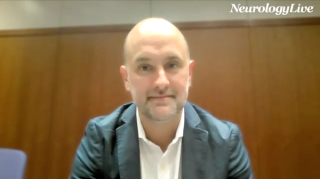
Neuromuscular
Latest News

Latest Videos

CME Content
More News

Phase 3 study demonstrates risdiplam's effectiveness in treating presymptomatic spinal muscular atrophy, showing improved outcomes for infants identified through newborn screening.

PTC Therapeutics faces FDA setback for vatiquinone, a potential Friedreich ataxia treatment, requiring further studies to demonstrate efficacy.

Explore the role of the complement system in autoimmune neuropathies like GBS and CIDP, and discover innovative therapeutic strategies targeting complement pathways.

Scholar Rock’s phase 3 SAPPHIRE trial of apitegromab revealed that the treatment led to improved motor function in patients with spinal muscular atrophy over a 52-week period.

Here's some of what is coming soon to NeurologyLive® this week.

Neurology News Network. for the week ending August 16, 2025. [WATCH TIME: 4 minutes]

Novartis revealed promising phase 3 trial results for ianalumab, a potential first treatment for Sjögren’s disease, showing significant disease activity reduction.

Catch up on any of the neurology news headlines you may have missed over the course of July 2025, compiled all into 1 place by the NeurologyLive® team.

Here's some of what is coming soon to NeurologyLive® this week.

Daniel Freedman, PhD, of MIT, gave clinical commentary on how Openwater’s Open-LIFU enables new research into conscious perception and potential clinical applications for conditions like pain and depression.

Vertex Pharmaceuticals halts VX-993 development for acute pain after phase 2 trial shows no significant efficacy compared with placebo.

The neurologist at Duke Health provided insights on how chronic demyelinating inflammatory polyneuropathy treatment is evolving toward biomarker-driven, personalized approaches at the 2025 Carolina Neuromuscular Summit. [WATCH TIME: 2 minutes]

The director of the Sean M. Healey & AMG Center for ALS at Massachusetts General Hospital gives clinicians insight on the reasons to attend the 2025 Carolina Neuromuscular Summit. [WATCH TIME: 3 minutes]

The director of neurosurgical pain division at Allegheny General Hospital highlighted the push to intervene earlier with neurosurgical treatments for chronic pain, including diabetic neuropathy. [WATCH TIME: 4 minutes]

Here's some of what is coming soon to NeurologyLive® this week.

Take 5 minutes to catch up on NeurologyLive®'s highlights from the week ending August 1, 2025.

Capricor Therapeutics navigates FDA challenges for deramiocel, aiming to advance treatment for DMD-related cardiomyopathy with promising trial data.

Roche faces regulatory challenges for Elevidys, an approved gene therapy for Duchenne muscular dystrophy, amid safety concerns and clinical trial setbacks.

Here's some of what is coming soon to NeurologyLive® this week.

A new phase 3 study will explore masitinib's potential as treatment for ALS, aiming to enhance patient outcomes and confirm earlier promising results.

Neurology News Network. for the week ending July 26, 2025. [WATCH TIME: 4 minutes]

Take 5 minutes to catch up on NeurologyLive®'s highlights from the week ending July 25, 2025.

AstraZeneca's gefurulimab shows promising results in treating generalized myasthenia gravis, offering patients a convenient, self-administered therapy option.

Neurology experts anticipate groundbreaking clinical trial results in 2025, potentially transforming treatment strategies for various neurological conditions.

Members from Nuvig Therapeutics discussed the rationale and therapeutic development of NVG-2089, a novel anti-inflammatory agent being studied for chronic inflammatory demyelinating polyneuropathy.

















